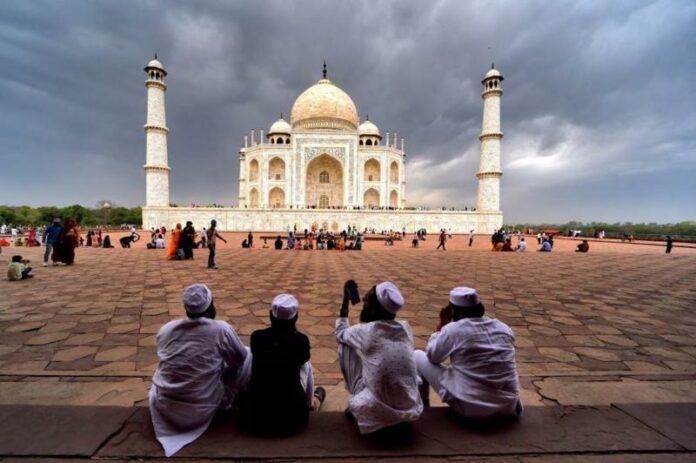- Good faith
- role,BBC News, India
-
7 hours ago
Six years ago, a Muslim boy returned home from a well-known school in the northern Indian city of Agra, livid with humiliation and anger.
“My classmates call me a Pakistani terrorist,” the nine-year-old boy told his mother.
Reema Ahmed, a writer and councillor, still remembers the day vividly.
” The angry little boy clenched his fists so hard that the fingernails burned into his palms. He was very angry.
His son recounted the incident at the school, saying that when the teacher left the class, his classmates started making fun of him.
“At that time a group of boys pointed at him and said, 'He is a Pakistani terrorist. Kill him!”
The boy said that some of his classmates even called him a sewer worm. When Ms Ahmed complained about this, she was told that they were “making up stories… nothing happened”.
Mrs. Ahmed picks up her son from school. The 16-year-old boy is now studying at home.
"I felt communal unrest through my son's experience, a feeling I can't remember ever having growing up," she said.
“Perhaps class privilege always protected us from thinking Muslim Now it seems class and privilege make you a more obvious target
Since Narendra Modi's Hindu nationalist Bharatiya Janata Party (BJP) came to power in 2014, the lives of India's 200 million Muslims have been thrown into turmoil.
Suspected cattle traders have been massacred by some extremist Hindu groups and Muslim-owned small businesses have been targeted.
A petition has been filed against the mosque. Online "auction" of Muslim women has been trolled on the internet.
Right-wing groups and some mainstream media have fueled Islamophobia with allegations of “jihad” – “love jihad”.
For example, Muslim men have been falsely accused of converting Hindu women through marriage.
And anti-Muslim hate speech is on the rise—three-quarters of it is reported to have occurred in BJP-ruled areas.
"Muslims in India have become second-class citizens, an invisible minority in their own country," says Zia Us Salam, author of 'Being Muslim in Hindu India'.
But BJP and Mr. Modi has denied mistreatment of minorities in India.
The Prime Minister told Newsweek magazine, “These are the ramblings of some people who, in their delusions, don't feel the need to go out and mingle with people. Even to India's minorities, these explanations are unsustainable.”
Mrs Ahmed's family has been living in Agra for decades. He notices a change in the many Hindu friends in the town's rickety and crowded houses.
In 2019, Ms Ahmed was kicked out of a school WhatsApp group where she was one of only two Muslims.
He took the decision in the wake of a message posted on the WhatsApp group after India launched airstrikes against militants in Muslim-majority Pakistan.
"If they hit us with missiles, we will kill them house to house," the group's message read.
Mr. about killing terrorists and enemies of India inside their homes. The group's message is consistent with Modi's speech.
“I couldn't keep calm anymore. I told my friends what is your problem? Do you condone the killing of civilians and children?” Mrs. Ahmed was reminiscing. He believed in campaigning for peace.
The response is immediate.
"One asks, are you pro-Pakistan just because you are Muslim? They also accused me of being anti-national,” he said.
“Speaking for non-violence is considered anti-national. I told them I don't have to be violent to support the country. I am leaving this group.”
Mrs. Ahmed was able to feel the change in the environment in another way. For a long time, her huge house became a hangout for her son's classmates, regardless of gender or religion.
But now in the wake of "Love Jihad" he asks Hindu girls to leave within a certain period so that they don't spend too much time in the boy's house.
“My father and I sat my son down and told him that it's not a good environment - you have to limit your friendships, be careful, don't stay out for too long. It goes without saying that things can turn into 'love jihad' at any time."
Environmental activist Iram, a fifth-generation resident of Agra, also noticed a change in the conversation among the city's children while working in a local school.
“Don't talk to me, my mother forbids,” he heard a child say to one of his Muslim classmates.










